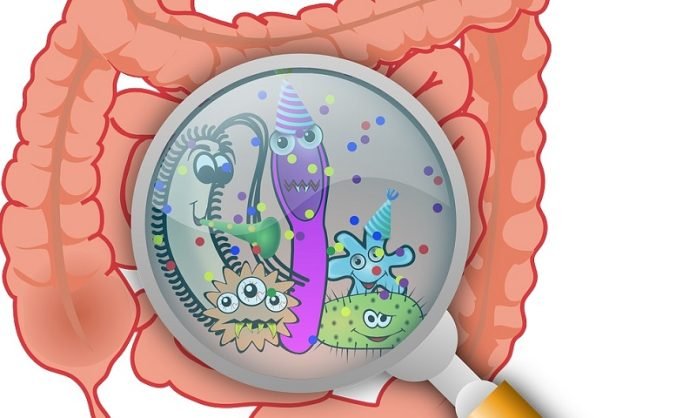
New research from the University of Missouri has found that there is a link between mental health problems, such as anxiety, depression, suicidal thoughts, and irritable bowel syndrome (IBS).
The research highlights the need for healthcare professionals to assess and treat associated psychiatric disorders in IBS patients to enhance their overall health and quality of life.
IBS is a chronic disorder of the stomach and intestines that affects up to 15% of the population.
It is a common chronic disorder of the digestive system that affects the large intestine (colon).
It is characterized by symptoms such as abdominal pain, cramping, bloating, gas, diarrhea or constipation or both.
The symptoms of IBS can vary in intensity and duration and can be triggered by a variety of factors, including stress, certain foods, and hormonal changes.
The study examined more than 1.2 million IBS patient hospitalizations from 4,000 hospitals in the United States over a three-year period and discovered that over 38% had anxiety, and over 27% had depression.
Both figures were double the rates of anxiety and depression found in people without IBS.
The prevalence of psychiatric disorders including anxiety, depression, bipolar disorder, suicidal attempt/ideation, and eating disorders was much higher in the IBS patients compared to the general adult population.
The researchers suggest that this may be due to a “brain-gut axis,” meaning that IBS symptoms influence anxiety and depression, and vice versa.
Therefore, healthcare professionals should address both the physical and psychological aspects of the disorder.
Untreated psychiatric disorders in IBS patients put additional strain on healthcare systems through increased hospital admissions and longer stays.
Chronic diseases like IBS are also associated with stress, work impairment, and economic burdens on patients and their families.
The team says the mesentery membrane that holds the intestines together has one of the largest collections of nerve cells in the body.
When those nerves start firing impulses, that can lead to a state of nervousness in and around the GI tract, resulting in IBS symptoms.
The resulting decline in patient quality of life can lead to poor lifestyle choices, such as smoking. Early evaluation and treatment of both IBS and associated psychiatric conditions are essential.
How to prevent IBS
The exact cause of IBS is still unknown, and there is no known cure for the condition. However, there are steps that individuals can take to help prevent the onset of IBS symptoms or alleviate their severity. Here are some tips to prevent IBS:
Identify and avoid trigger foods: Certain foods and drinks can trigger IBS symptoms in some people. Common triggers include dairy products, spicy foods, high-fat foods, alcohol, and caffeine.
Keeping a food diary can help you identify which foods may be triggering your symptoms, so you can avoid them in the future.
Manage stress: Stress is a common trigger for IBS symptoms. Learning stress management techniques such as deep breathing, meditation, and yoga can help reduce stress levels.
Get regular exercise: Exercise can help improve digestion and relieve stress, which may help prevent IBS symptoms. Aim for at least 30 minutes of moderate exercise per day.
Stay hydrated: Drinking plenty of water can help keep your digestive system running smoothly and prevent constipation, which can trigger IBS symptoms.
Don’t skip meals: Skipping meals or going for long periods without eating can trigger IBS symptoms. Try to eat small, frequent meals throughout the day to keep your digestive system on track.
Quit smoking: Smoking can worsen IBS symptoms and increase the risk of developing the condition. If you smoke, talk to your doctor about quitting.
Talk to your doctor: If you are experiencing IBS symptoms, it’s important to talk to your doctor. They can help you identify your triggers and develop a treatment plan that works for you.
Remember, everyone’s experience with IBS is different, and what works for one person may not work for another. It’s important to listen to your body, identify your triggers, and develop a plan that works for you.
If you care about health, please read studies about how dairy foods may influence depression risk, and ultra-processed foods linked to common bowel disease.
For more information about health, please see recent studies about tooth loss linked to inflammatory bowel disease, and extra-virgin olive oil could reduce depression symptoms.
The study was conducted by Yezaz Ghouri et al and published in the Irish Journal of Medical Science.
Copyright © 2023 Knowridge Science Report. All rights reserved.



